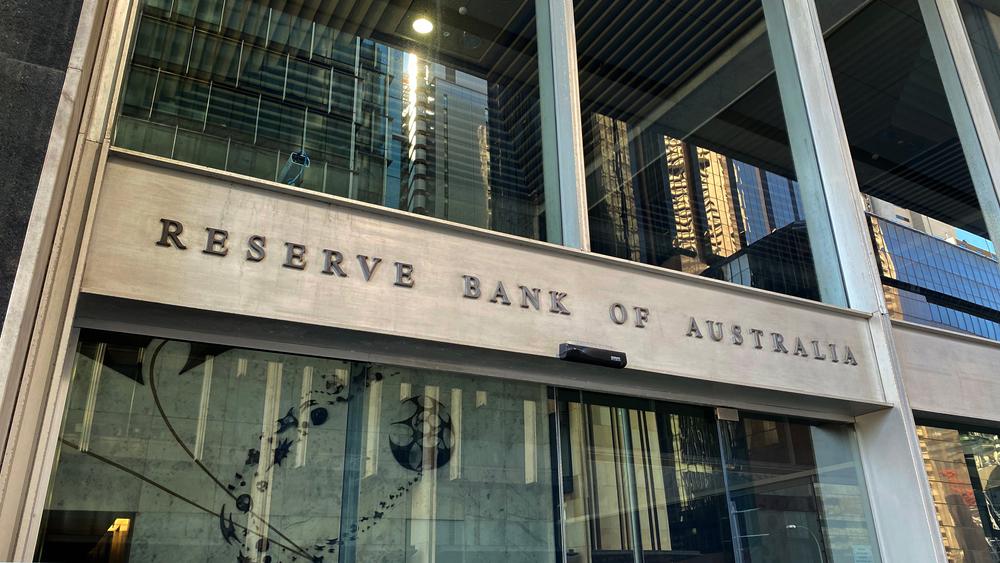The Reserve Bank of Australia (RBA) made its first interest rate cut in nearly five years, citing concerns over a potential global trade war and slowing domestic growth. Deputy Governor Andrew Hauser emphasized that while the 25-basis-point reduction to 4.10% in February aimed to curb inflation risks, the central bank remains cautious about further cuts.
Speaking at the Australian Financial Review Business Summit, Hauser highlighted growing investor and consumer concerns over U.S. trade tariffs, particularly after recent escalations by President Donald Trump. He warned that an intensified trade conflict could impact Australia's trade-dependent economy and influence inflation.
“A global trade war would likely harm Australian economic activity, but its effect on inflation is complex,” Hauser stated. The RBA remains focused on preventing inflation from falling below its 2-3% target range, yet it does not currently anticipate a series of rate cuts despite market expectations.
Australia’s strong labor market adds another layer of complexity, making the RBA cautious about excessive monetary easing. The central bank has reiterated its data-driven approach, signaling no immediate plans for further reductions unless economic indicators justify additional support.
The minutes from the RBA’s recent policy meeting reinforced this stance, emphasizing that February’s rate cut does not guarantee a trend of continued easing. Hauser reaffirmed the RBA’s commitment to balancing inflation control with economic stability, ensuring that any future moves align with broader financial conditions.
As uncertainty surrounding global trade persists, the RBA will closely monitor economic developments before making further monetary policy decisions.



 Trump Lifts 25% Tariff on Indian Goods in Strategic U.S.–India Trade and Energy Deal
Trump Lifts 25% Tariff on Indian Goods in Strategic U.S.–India Trade and Energy Deal  BOJ Holds Interest Rates Steady, Upgrades Growth and Inflation Outlook for Japan
BOJ Holds Interest Rates Steady, Upgrades Growth and Inflation Outlook for Japan  Vietnam’s Trade Surplus With US Jumps as Exports Surge and China Imports Hit Record
Vietnam’s Trade Surplus With US Jumps as Exports Surge and China Imports Hit Record  Asian Stocks Slip as Tech Rout Deepens, Japan Steadies Ahead of Election
Asian Stocks Slip as Tech Rout Deepens, Japan Steadies Ahead of Election  China Extends Gold Buying Streak as Reserves Surge Despite Volatile Prices
China Extends Gold Buying Streak as Reserves Surge Despite Volatile Prices  Dow Hits 50,000 as U.S. Stocks Stage Strong Rebound Amid AI Volatility
Dow Hits 50,000 as U.S. Stocks Stage Strong Rebound Amid AI Volatility  India–U.S. Interim Trade Pact Cuts Auto Tariffs but Leaves Tesla Out
India–U.S. Interim Trade Pact Cuts Auto Tariffs but Leaves Tesla Out  Bank of England Expected to Hold Interest Rates at 3.75% as Inflation Remains Elevated
Bank of England Expected to Hold Interest Rates at 3.75% as Inflation Remains Elevated  Gold Prices Slide Below $5,000 as Strong Dollar and Central Bank Outlook Weigh on Metals
Gold Prices Slide Below $5,000 as Strong Dollar and Central Bank Outlook Weigh on Metals  Japan Economy Poised for Q4 2025 Growth as Investment and Consumption Hold Firm
Japan Economy Poised for Q4 2025 Growth as Investment and Consumption Hold Firm  U.S. Stock Futures Slide as Tech Rout Deepens on Amazon Capex Shock
U.S. Stock Futures Slide as Tech Rout Deepens on Amazon Capex Shock  Oil Prices Slide on US-Iran Talks, Dollar Strength and Profit-Taking Pressure
Oil Prices Slide on US-Iran Talks, Dollar Strength and Profit-Taking Pressure  Gold and Silver Prices Slide as Dollar Strength and Easing Tensions Weigh on Metals
Gold and Silver Prices Slide as Dollar Strength and Easing Tensions Weigh on Metals  ECB’s Cipollone Backs Digital Euro as Europe Pushes for Payment System Independence
ECB’s Cipollone Backs Digital Euro as Europe Pushes for Payment System Independence  Trump Signs Executive Order Threatening 25% Tariffs on Countries Trading With Iran
Trump Signs Executive Order Threatening 25% Tariffs on Countries Trading With Iran 































